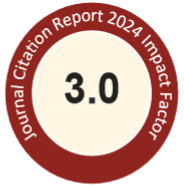Abstract
Humans are a unique reservoir of heterogeneous and vivacious group of microbes, which together forms the human-microbiome superorganism. Human gut serves as a home to over 100–1000 microbial species, which primarily modulate the host internal environment and thereby, play a major role in host health. This spectacular symbiotic relationship has attracted extensive research in this field. More specifically, these organisms play key roles in defense function, eupepsia along with catabolism and anabolism, and impact brain-gut responses. The emergence of microbiota with resistance and tolerance to existing conventional drugs and antibiotics has decreased the drug efficacies. Furthermore, the modern biotechnology mediated nano-encapsulated multiplex supplements appear to be high cost and inconvenient. Henceforth, a simple, low-cost, receptive and intrinsic approach to achieve health benefits is vital in the present era. Supplementation with probiotics, prebiotics, and synbiotics has shown promising results against various enteric pathogens due to their unique ability to compete with pathogenic microbiota for adhesion sites, to alienate pathogens or to stimulate, modulate and regulate the host's immune response by initiating the activation of specific genes in and outside the host intestinal tract. Probiotics have also been shown to regulate fat storage and stimulate intestinal angiogenesis. Hence, this study aims to underline the possible beneficial impact of probiotics for human health and medical sectors and for better lifestyle. © 2018
ScienceDirect Link
Recommended Citation
George, Kerry R.; Patra, J.K.; Gouda, S.; Park, Y.; Shin, H.-S.; and Das, G.
(2018)
"Benefaction of probiotics for human health: A review,"
Journal of Food and Drug Analysis: Vol. 26
:
Iss.
3
, Article 5.
Available at: https://doi.org/10.1016/j.jfda.2018.01.002
Creative Commons License

This work is licensed under a Creative Commons Attribution-Noncommercial-No Derivative Works 4.0 License.
Fulltext URL
https://www.sciencedirect.com/science/article/pii/S1021949818300309/pdfft?md5=7abcc9b3b3d17139cb14039f88a29900&pid=1-s2.0-S1021949818300309-main.pdf
Included in
Food Science Commons, Medicinal Chemistry and Pharmaceutics Commons, Pharmacology Commons, Toxicology Commons


Abstract Image